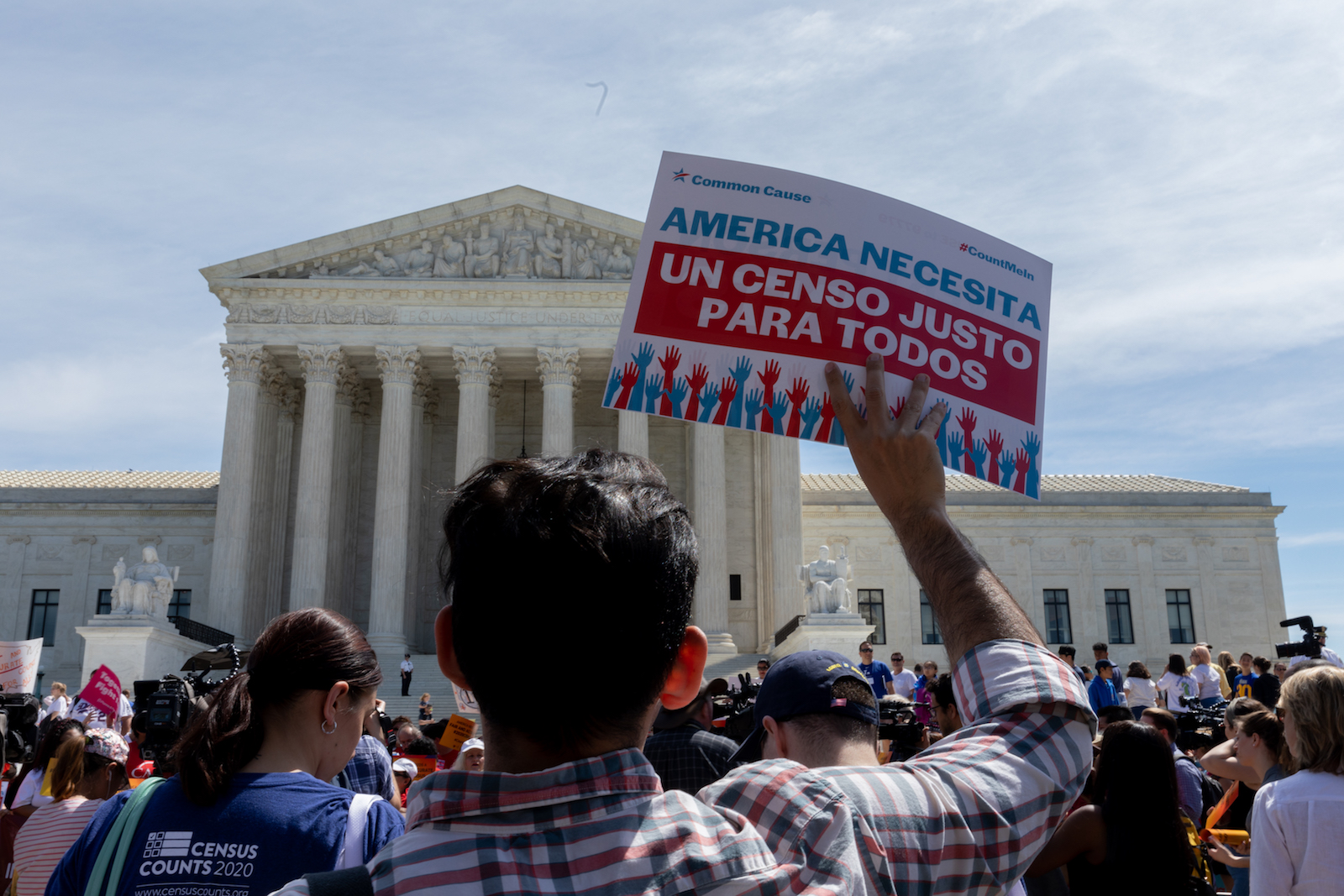
The Latinos who flipped Arizona may have been systematically undercounted in 2020 Census
Fear and lack of state funding likely hurt Latino response to the 2020 Census. It’s a trend many have picked up across the country.
Upon the release of the Census congressional apportionment population counts for 2020, there are several indications to point that there may have been an undercount of Latinos.
Latinos in the United States have accounted for about half of the nation’s population growth since 2010, but this figure is not reflected in the latest data released by the Census Bureau.
From 2010 to 2019, a Pew Research study shows that the U.S. population increased by 18.9 million, and Hispanics accounted for more than half (52%) of this growth,
In fact, some states with the biggest or fastest-growing Latino populations either saw a decrease in congressional seats, or they remained the same despite rising populations within their own demographic groups.
Across four states — Illinois, Connecticut, West Virginia, and Vermont — Pew Research found that the Latino population increased from 2010 to 2019. However, the total state population declined among the white demographic during the same timeframe.
Two of these mentioned, Illinois and West Virginia, each lost a seat in Congress because of a decrease in response to the 2020 Census.
New York, Pennsylvania, California, Ohio, and Michigan also lost a congressional seat. Texas gained two, but was expected to gain three. Arizona was expected to gain one but didn’t gain any.
“Arizona, Florida, and Texas — Republican-run states that committed relatively few resources to the census — each ended up with one House seat fewer than the Census Bureau had forecast,” The New York Times reported.
According to the Census Bureau, these states also had self-response rates below the national average, at 67%.
Nowhere is the issue more controversial than in Arizona, the state that recently flipped Democratic, in part by the power of young Mexican-American mobilizers. In Arizona (where the census response rate found a decrease in population), it’s a case of either gross overestimation before the count, or a failure to reach all populations.
Rep. Ruben Gallego believes it’s the latter.
“Last Congress I co-led the Census Deadline Extension Act to extend the count because we *knew* Latinos, Native Americans, and Arizonans in rural & hard-to-reach areas weren’t being counted. This undercount is an intentional part of Trump’s legacy,” Gallego tweeted following the census announcement.
Last Congress I co-led the Census Deadline Extension Act to extend the count because we *knew* Latinos, Native Americans, and Arizonans in rural & hard-to-reach areas weren’t being counted. This undercount is an intentional part of Trump’s legacy. https://t.co/SJt1MLauVz
— Ruben Gallego (@RepRubenGallego) April 26, 2021
The state spent less than $1.5 million on census outreach efforts despite it being one of the fastest-growing states. The Census Apportionment Data, however, depicts a decrease in population.
It’s a disparity that comes in at 3% below the Census Bureau estimate.
Whether it was an attempt to save money on the part of Governor Doug Ducey, or a direct undermining of the Latino electorate in the state, the lack of investment will lose untold billions of dollars in funding for Arizona over the next decade.
RELATED CONTENT
Activists also blamed Ducey for supporting the Trump administration's effort to add a citizenship question to the 2020 census questionnaire.
Over the course of the controversial 2020 census count, former President Donald Trump tried to exclude undocumented immigrants from the 2020 Census, leaving room for many Latinos to refrain to complete the census for fear of deportation.
The attempt was eventually blocked by the courts, but the damage was done.
California lost a congressional seat for the first time in its history, but this was to be expected for those following the mass exodus of California residents who, for the past decade, have been leaving the state due to the cost of living. While the outward migration slowed during the pandemic, a popular destination for these California ex-pats is Texas, followed by Arizona.
It fuels the speculation that there was a severe undercount in these states.
While the complete Census report is yet to be released, these preliminary figurines indicate that the previous administration’s continued attempts to weaponize and politicize the census will likely result in less representation for the systemically undercounted communities.
This also boils down to state leadership, whose direct influence may result in a decrease in much-needed funding over the next 10 years.
In the 2020 election, record young, Mexican-American mobilization delivered the state to Joe Biden, one of the early indicators of his victory.
The issue is that these same voters are not reflected in the Census.











LEAVE A COMMENT: